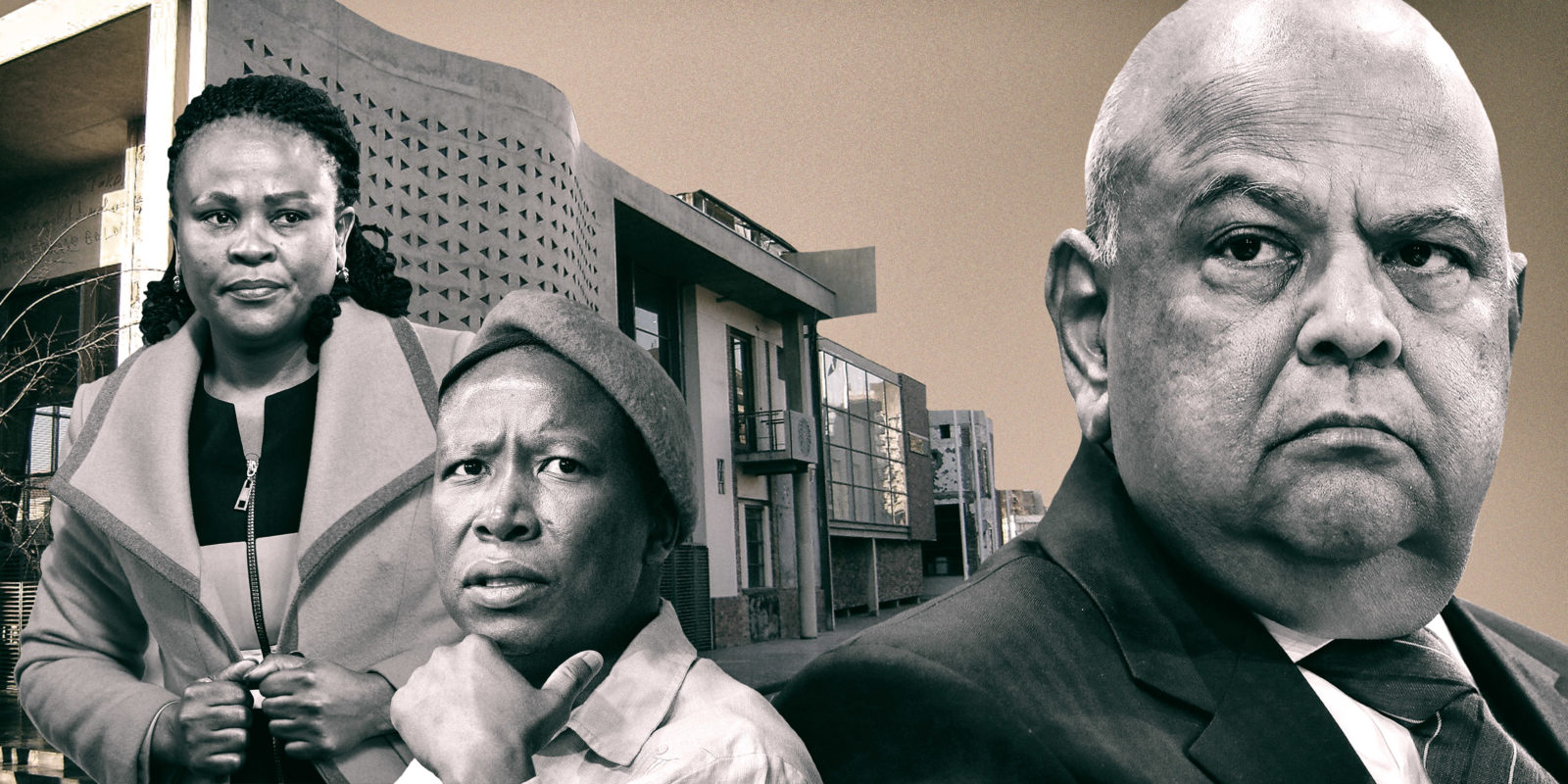
ConCourt denies Public Protector, EFF leave to appeal Gordhan interdict
by Greg NicolsonPublic Protector Busisiwe Mkhwebane scored a small victory as the Constitutional Court overturned a personal costs order against her. But the court dismissed a bid by her and the EFF to appeal an interim interdict granted to Pravin Gordhan while he takes Mkhwebane’s SARS report on review.
The Constitutional Court has dismissed the EFF and the Public Protector’s applications for leave to appeal an interim interdict granted to Public Enterprises Minister Pravin Gordhan in the matter regarding Busisiwe Mkhwebane’s report on the intelligence unit established in 2007 at the South African Revenue Service (SARS) when Gordhan was commissioner.
CLOSE
The judgment, penned by Justice Sisi Khampepe and released on Friday 29 May, found that the North Gauteng High Court had applied the correct rule when issuing the 2019 interdict, which suspended remedial orders against Gordhan while he took the report on judicial review.
The Public Protector’s 2019 report found that SARS had acted inconsistently with the Constitution by not respecting the powers of the National Intelligence Agency. Mkhwebane ordered President Cyril Ramaphosa to take disciplinary action against Gordhan and provide a plan on how he would do so, which had to be submitted for her approval within 30 days.
Display Adverts
Judge Sulet Potterill in the North Gauteng High Court granted Gordhan an interdict while his review application was pending and ordered Mkhwebane to personally pay part of his legal costs.
The EFF and Public Protector applied for leave to appeal the interdict in separate cases, which were heard jointly.
The Constitutional Court said the question before it was: “How should a High Court approach an application for interim relief to suspend the implementation of remedial action that the Public Protector directs against a member of the executive when that same member of the executive challenges the legality of the remedial action?”
The EFF argued that there should be a stricter test for granting interdicts against the Public Protector, to ensure her office is accessible and effective and to ensure she can fulfil her constitutional duties.
“This argument, while novel and interesting, has no merit,” read the judgment.
Mkhwebane conceded that interdicts are regularly issued against her office and it continues to receive complaints and issue reports. The court found that she continues to function despite interdicts being issued, much like courts do pending appeals.
The Public Protector said the interdict interferes with her constitutional duties and the court should look at how it might affect her powers and functions.
Display Adverts
The judgment said: “Once a report is published and made available for public consumption, it is difficult to understand how an interim interdict against the enforcement of the remedial action hinders the effectiveness of the Public Protector.
“How would an interim interdict hinder the Public Protector in the exercise of her powers, or prevent her from exercising her functions once the report is released and in the public domain?” it asked.
“The Public Protector is not rendered ineffective since the investigation has been completed, the SARS Report has been finalised and published and the interim interdict is sought merely to protect the prima facie rights of an applicant.”
While the court found that the Public Protector faced no prospect of irreparable harm should the interdict be upheld, Gordhan would suffer and had no alternative remedy if the remedial actions stood pending his judicial review.
“According to the High Court, the SARS Report maligned him as being untruthful and a spy. It is therefore a reasonable apprehension that the remedial action contained in the SARS Report would impact his political career and his personal circumstances,” the Constitutional Court said.
The court did, however, overturn the High Court’s ruling that Mkhwebane must personally pay some of Gordhan’s legal costs.
“It did not furnish any reasons to justify a personal costs order against Ms Mkhwebane. In fact, the High Court disavowed any reliance on the adverse allegations made by Mr Gordhan, which could have possibly grounded a personal costs order,” said Friday’s judgment.
Display Adverts
“Thus, absent reasons for granting a personal costs order against the Public Protector and disavowing the adverse allegations, there seems to be no factual basis for making a personal costs order,” it continued.
“This cannot be done in the abstract and the facts must plainly support an order of this nature.”
The court noted the public interest in the case, which Khampepe said had “political bite to it”.
“There should be robust debate in the public domain on pertinent issues that affect it. However, there is danger in following populist rhetoric and labelling courts as captured and corrupt, without sound reasons or evidence. This undermines one of the core tenets of our constitutional democracy,” said the judgment. DM

Greg Nicolson
Comments - share your knowledge and experience
Please note you must be a Maverick Insider to comment. Sign up here or sign in if you are already an Insider.